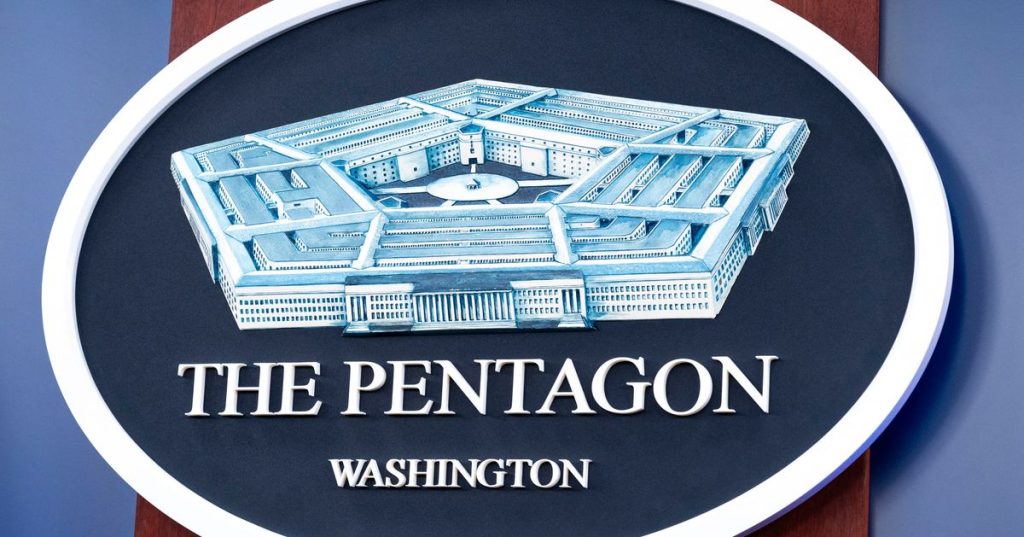Trump Administration Evicts Major News Outlets from Pentagon, Sparks Outcry
In a controversial move that has drawn widespread criticism from the media and press freedom advocates, the Trump administration announced on Friday that it would be evicting several prominent news organizations from their dedicated workspaces at the Pentagon. The decision, outlined in a memo by John Ullyot, acting assistant to Defense Secretary Pete Hegseth, is part of a new rotation policy that prioritizes outlets deemed more favorable to the administration. Among the organizations being asked to leave are CNN, The Washington Post, the Hill, and War Zone, while Newsmax, the Washington Examiner, the Daily Caller, and the Free Press will take their places. This move has been widely condemned as an escalation of the administration’s ongoing hostility toward the media.
The Pentagon Press Association, which represents journalists covering the Department of Defense, called the decision “unreasonable” and expressed deep disappointment. The association argued that the move undermines the principle of a free press and appears to penalize outlets that have provided critical coverage of the administration. The memo from Ullyot framed the evictions as an effort to provide “the same opportunity to cover our nation’s finest up close” to other outlets, but critics contend that the policy is transparently partisan. Many of the outlets being ousted, such as The New York Times, CNN, and Politico, have been frequent targets of President Trump’s criticism, while the organizations moving in have been more sympathetic to the administration.
This decision is the latest in a series of actions by the Trump administration that have raised concerns about its attitude toward the press. Earlier this week, it was reported that the administration is considering canceling media subscriptions paid for by federal agencies, a move that would further restrict access to information for journalists. While the Pentagon is not outright barring the evicted outlets from covering the Department of Defense, the loss of dedicated workspace inside the Pentagon will make it more challenging for them to do their jobs effectively. Reporters rely on these spaces for quick access to officials, reliable internet, and the ability to file stories promptly, especially during breaking news events.
In response to the announcement, the affected outlets have vowed to continue their reporting regardless of the changed circumstances. CNN issued a statement affirming its commitment to holding the Department of Defense, the U.S. military, and the Trump administration accountable, while The Washington Post emphasized its dedication to fair and independent coverage. Both organizations made clear that they would not be discouraged by the loss of their Pentagon workspace. Similarly, Politico stated that it would continue to cover the Pentagon without interruption. These responses reflect the resilience of the press in the face of adversity and underscore the importance of maintaining a free and independent media.
The Pentagon Press Association has been vocal in its opposition to the new rotation policy, describing it as a clear attempt to favor certain outlets over others. The association pointed out that there is no apparent space constraint at the Pentagon and offered to help find room for all outlets, but this offer was reportedly dismissed. Many news organizations have invested significant resources into their Pentagon workspaces, particularly television networks that rely on specialized wiring to broadcast live reports during emergencies. The association also expressed dismay that the administration is doubling down on this policy despite widespread criticism, viewing it as a troubling sign for press freedom in the United States.
The controversy over the Pentagon workspace has sparked a broader conversation about the administration’s treatment of the media and its potential impact on democracy. The National Press Club described the decision as “deeply concerning” and warned that it could set a dangerous precedent for government-media relations. While the administration frames the policy as a routine rotation, critics see it as part of a larger pattern of authoritarian behavior that seeks to marginalize critical voices. The evictions from the Pentagon serve as a stark reminder of the ongoing challenges faced by journalists in holding power to account and the importance of defending press freedom in the face of adversity.
